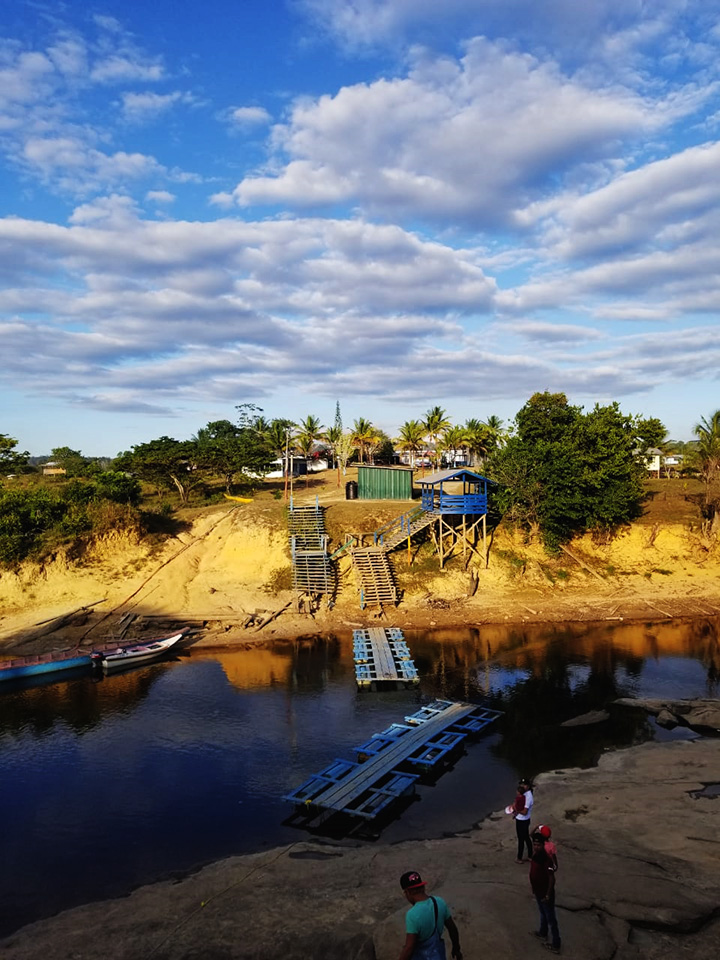Although many persons living in the indigenous community of Jawalla, in Region Seven, are slowly adapting to the restrictions that have been put in place by the Ministry of Public Health to slow the spread of COVID-19, some who need internet access for their education have been unable to properly attend their online classes due to lack of cellular service and poor Wi-Fi connectivity.
Schools across the country have been closed until further notice due to the pandemic, which has claimed nine lives in the country thus far.
During an interview, 21-year-old Danella Clement, who is a student of the University of Bedfordshire, told Stabroek News that many students in Jawalla have been severely affected despite the fact that many educational institutions have been providing online classes.
Online classes are only beneficial to persons who have access to the internet and with the closure of schools, numerous Jawalla residents who are attending the University of Guyana and other educational institutions were forced to return home, where they have no access to cellular service or Wi-Fi.
Clement disclosed that she is the only person in the entire village with Wi-Fi at her home and therefore many persons have approached her and asked her if they can tap it so they can access their online classes and mid-term exams. Unfortunately, she said, even though she has given them access, the Wi-Fi connection is slow and so they are unable to complete their assignments or attend their classes properly.
“It is like a stricter version of a data plan. I can’t get to do my assignments and I can’t attend my classes because it’s usually at least two hours long. It’s not just me, the UG students and the secondary students who have returned from Georgetown are also suffering from the same problems. It’s hard to get their assignment done on time or they can’t do their presentation properly. Sometimes, the data finishes on them or it’s just slow so it has really been tough,” Clement said.
In addition, she disclosed, there are many who have expressed interest in attending online classes but they have no computer to do so. “So only those who have personal computers are able to use the Wi-Fi,” she added.
She also said, “I am on the verge of quitting school but I have spent a lot of money already and so have many others here.”
Further, she said as it relates to the Primary School in the village, the children are yet to get access to the work books that are supposed to be distributed by the Education Ministry.
Apart from that, she said, residents are yet to be affected by the restrictions in place by the Ministry of Public Health and that the village council did not impose additional restrictions because most people work outside of the village. However, she stated, surrounding villages have implemented additional restrictions so outsiders are rarely seen in Jawalla.
Clement said that the village’s main source of income is gold mining and many villagers are currently residing in the gold mining camps nearby. However, this means that many are still mingling with outsiders and residents are getting fearful of contracting the disease.
Meanwhile, according to Clement, many persons are still refusing to take extra precautionary measures. She stated that many shop owners have installed hand washing stations at their shops but consumers sometimes refuse to wash their hands.
That being said, she noted that people are adapting to their new lifestyle and are maintaining social distancing and have stopped all holiday and birthday gatherings. “It has been hard but people are adapting to the new life style,” she said.






